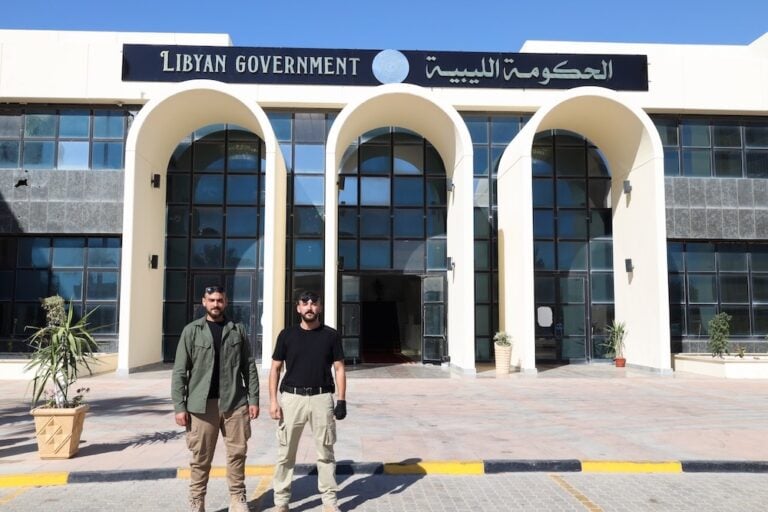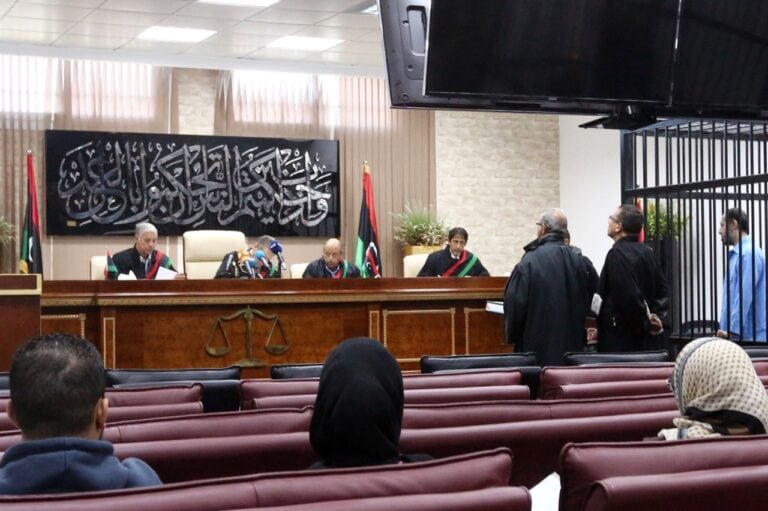(RSF/IFEX) – RSF has reiterated its call for press freedom in Libya after the government daily “Al-Zahf al-Akhdar” (“The Green Step”) was suspended for one week on 27 January 2004 for suggesting that Colonel Muammar Gaddafi should no longer be referred to as the “guide of the revolution” and should instead start behaving as a […]
(RSF/IFEX) – RSF has reiterated its call for press freedom in Libya after the government daily “Al-Zahf al-Akhdar” (“The Green Step”) was suspended for one week on 27 January 2004 for suggesting that Colonel Muammar Gaddafi should no longer be referred to as the “guide of the revolution” and should instead start behaving as a genuine head of state.
“The newspaper was immediately censored for daring to criticise the regime and asking Colonel Gaddafi to play his role as president properly. We once again call on the Libyan authorities to allow a free and independent press to express itself,” RSF Secretary-General Robert Ménard said. “Despite Colonel Gaddafi’s concessions in the international arena, aimed at giving his regime a more favourable and open image, he has still not made the slightest gesture towards improving press freedom, which is non-existent in his country,” Ménard stressed.
The Libyan authorities said “Al-Zahf al-Akhdar” was suspended for making “serious mistakes” and for “publishing articles contrary to the power of the masses.” The Agence France-Presse news agency said the newspaper had recently carried an article calling on Gaddafi to “fully exercise the power of a president and to put an end to the rhetoric surrounding his title as ‘guide of the revolution'”. The article said the revolution had matured and it was “now time to change the rules of the game and create a model state”. “The warrior who has led this revolution must now build the state and truly become president”, the paper added.
“Al-Zahf al-Akhdar” was previously suspended for one week in October 2003 after insulting and criticising Bahrain and Kuwait (see IFEX alert of 16 October 2003).
RSF also noted that Gaddafi is not content with silencing the Libyan press, but also launches legal action against journalists who criticise him abroad. “It is high time the colonel changed his approach towards the press,” Ménard said.
On 25 January, Libya’s ambassador to Rabat, Morocco, filed a complaint against Mustapha Alaoui, editor of the weekly “Al-Ousbou”, over an article about Libya’s decision to abandon its nuclear weapons programme. The article called on Libya to compensate the families of Moroccans who were killed by Libyan arms supplied to the Polisario Front. It was accompanied by a cartoon considered defamatory by Gaddafi, because it showed the silhouette of a figure with its trousers down.
“There was nothing [in the cartoon] that identified Gaddafi, so the complaint is without any merit,” Alaoui told RSF. “But Gaddafi tries to harass journalists who dare to question his policies, even outside Libya,” Alaoui said.


